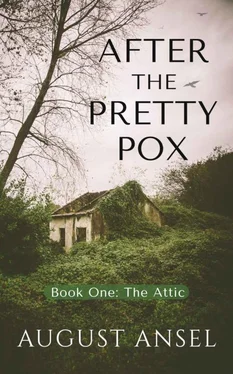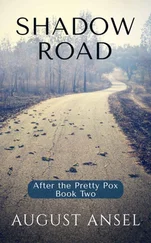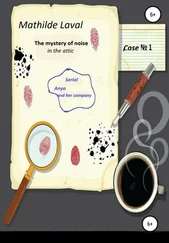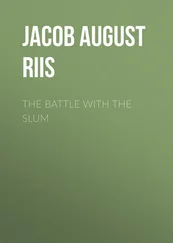“I sojourn,” Arie said. The words were old. She was older. They fell from her mouth like polished agates. “I sojourn. My life is my own. I shall not give, neither shall I receive. Rest for me. Rest for the Mother.” She slid into her bedroll, a thick pile of sheets and blankets layered over a plastic shower curtain. All was silence in the attic. All was silence in the rooms of ruin below. Beyond, in the ravaged streets and burgeoning timber, the crumbling buildings and bounteous estuaries, there were only the sounds of the rightful inheritors.

She slept later than usual. The sun had already cleared the horizon when she opened the sky panel and looked out. An enormous flock of geese passed overhead, plying their northern route. It was early fall and the weather still warm. “October,” she said aloud, then again, stretching the word out on her tongue: “Oc-to-berrrr.” It was another language, a word that connected in her mind to other anachronisms, like “school” and “jack-o’-lantern” and “shoe store.” Odd, since Arie hadn’t attended a school until she was close to grown, nor ever carved a pumpkin—that being the devil’s work—and as a child she only wore shoes that her older siblings had outgrown. “Collective unconscious,” she said. More devil’s work, according to Daddy Mack.
The second rung of the ladder put her barely head and shoulders above the roofline. She raised the binoculars for a quick scan of the street. There was only a raccoon disappearing into a neighbor’s window, into what had been Peter and Rachel’s house, and baby Gabe’s. Gabe—fine and happy when Rachel put him in his crib so she could catch a shower, but five minutes later slumped onto his side, clutching a stuffed penguin and struggling for breath. Rachel came tearing into the street with Gabe in her arms, screaming for Arie. The baby was the first one Arie saw dead with the Pink, the shocking color making his little round face look not only alive, but radiant. They both tried to breathe for him, crouched between the raised garden beds in Arie’s front yard, taking turns. Arie had not taken up the catechism yet, but it rooted in her then, the wisdom of it, as she tried to blow life into her neighbor’s child.
The sky panel let out on the south side of the house. The pitch and angle of the roof created a protected space there. She could ease out, and unless something was directly beneath her in the weedy tangle that had been her backyard, she could not be easily seen. It wasn’t until she was all the way out and moving around that she was visible from the street, so she stepped onto the top rung and emerged inches at a time, watching, listening.
Clear.
First, she hauled up the bucket and emptied it into the plastic laundry basket that served as her compost bin: meager food scraps, river muck and dried grass. She kept coons and rats from disturbing the basket by adding her night urine. Then she made a quick pass through her checkerboard of small garden boxes. She gathered carrots, a few leaves of kale, some pea pods, munching while she pulled a few small weeds. The soil in one box was especially dry; she dipped into the gray-water bucket and wet around the beets and chard.
That done, she dropped the bucket back into the attic and lowered the sky panel. The ammo bag and slingshot were in her apron pocket, the short spear in her belt. She strapped on a woven carry basket she used for gathering firewood and other bulky collectibles, and crept to the edge of the roof. The yard was still empty of everything but overgrown amaranth weeds and trash. To one side of the decayed chimney was a narrow space formed between the wall of the house and a matted screen of rhododendron, jimson weed, blackberry, and English ivy. She dropped a rope ladder into the gap. Once she was down, the contraption retracted by means of a pulley line; this she threaded deeply into the brush, rendering it all but invisible.
She picked her way out from behind the bushes. She followed an occluded path in the tall weeds and through a place in the chain-link fence where the gate once stood. Most of the windows in the house were broken, some roughly patched with cardboard but most left jagged and gaping. The front yard was also overgrown, the lawn now a shoulder-high prairie. She moved out to the street, watchful, hand on the shaft of the short spear.
It was another beautiful day, with the kind of huge clouds meant to be watched while lying back in a field, looking for familiar shapes. Arie preferred to walk close to the street rather than in it, the shrubs and weeds flanking the hoven and cracked asphalt providing a certain amount of cover. In many places the chunks of asphalt were so blasted and invaded by plants growing up from underneath and from seeds falling or blowing into every microscopic crack, it was already hard to see that it had once been a tidy suburban street, even though it was barely two years since cars stopped driving on it.
The tree line was also much closer than it had once been. It happened. The rains recommenced, city maintenance workers—whose job had been to cut back branches and briars—were dead or disappeared. Now every time Arie came outside, the gulch seemed to have crept a little closer. At the edge of the woods, she went down on her haunches and looked back at the house. It looked utterly derelict: the front door standing most of the way open, broken windows on every side, hugely overgrown yards. And on that open front door, a faded red X painted. Pox inside, that X meant. The Pink Plague lives here.
Satisfied, she took the path into the woods. It had been a packed-dirt thoroughfare when she was a little girl, the favorite way for disk golfers and skateboarders to cut through the trees and into the Cooper Gulch Family Park. A favorite shortcut of derelicts, too, mostly meth-addled homeless who raved back and forth, shouting down a windrow of invisible foes, their skin haggard with sores, their teeth gone or going. That was the neighborhood her grandparents had lived in, a different one than they had moved to in their middle years, but still familiar, still wreathed in a certain tattered normalcy. This version, though, they would not recognize in any particular. Storms had blown over a great many trees, more than a few power poles (which had been trees once, too) and dragged useless lines down into snarled nests. All those entertaining pulses of data and power, all those houses tethered like angular fetuses on twisted umbilici, all silent now. There was more of everything alive, and less of everything constructed by the interlopers. And the interlopers themselves, of course. Not many of those left.
The path showed the outline of the woman’s tracks, where she’d fled from the dog last night, the faint whorls from her shoe soles more pronounced through the toes because she had been running. These were the first human footprints she’d seen in a great while. Close to a year, maybe longer. She uprooted a handful of horsetail and brushed away the mottled prints as she walked alongside in the weeds.
Arie hunched into the underbrush, angling her way south away from the trail until the alder saplings and huckleberry bushes got so thick she was practically on hands and knees. The woods still smelled of summer skunk cabbage, ripe and acidic, and the fading perfume of blackberries, mostly rotting on the branch now—those that hadn’t been eaten by birds and bears. And by Arie, who had gotten gallons this year and reveled in them. Fruit leathers and bowls filled, she with seeds lodged between her molars, fingers and mouth stained deep red. Straight from the bush, the fruit was often sour—they’d used so much sugar on berries before the Pink—but fresh and delicious anyway. She’d even created a rough version of pemmican from a mix of things she half-remembered from a childhood reading assignment: berries, finely minced fat and meat saved from a duck she’d managed to snare, and blanched acorn mash. The resulting pemmican had been chewy and variable in taste, gamey. But edible after having dried in the sun. Thinking about it now made her mouth water.
Читать дальше













